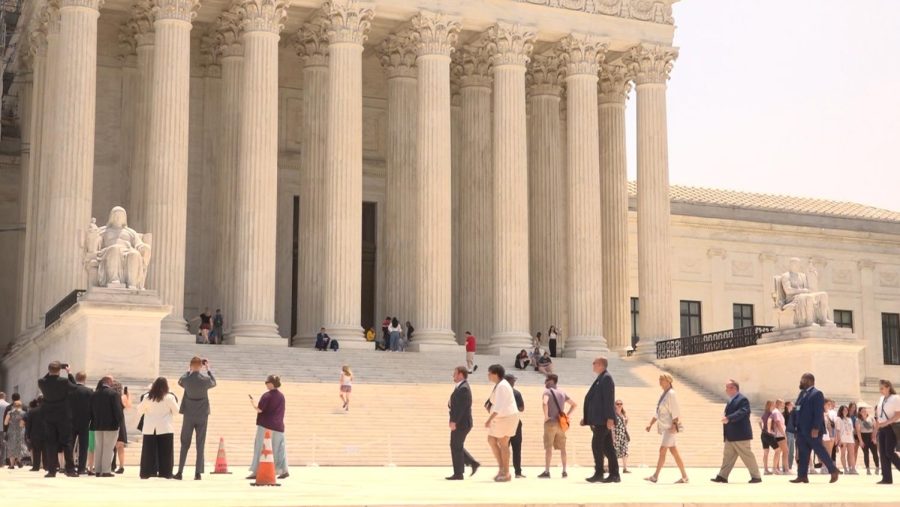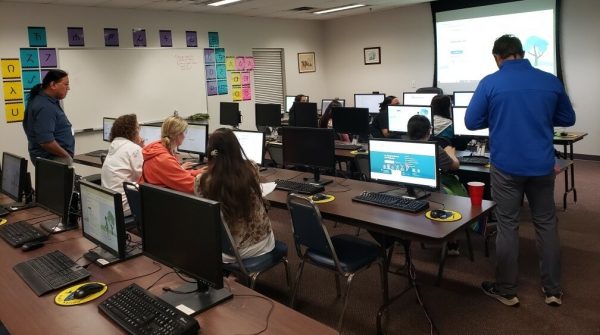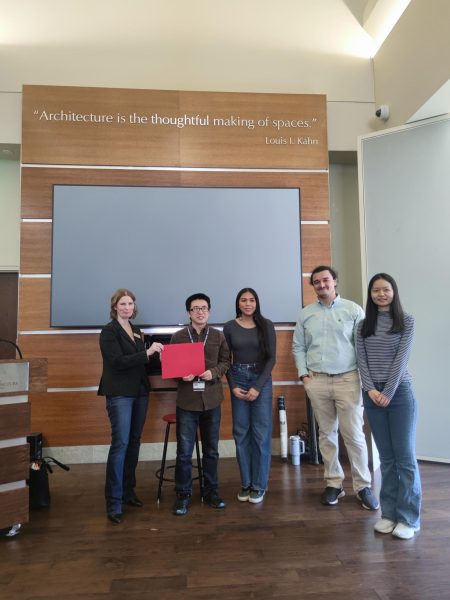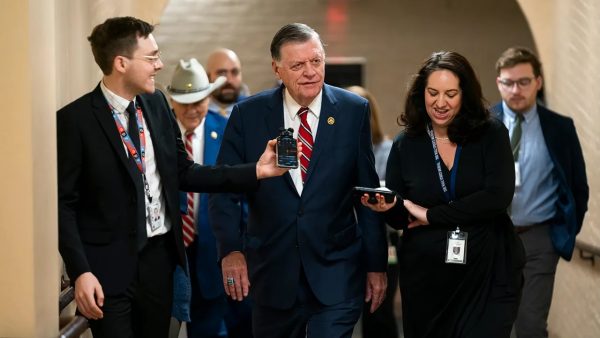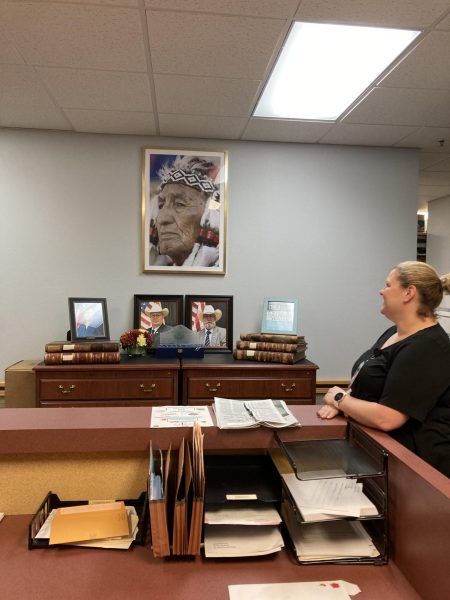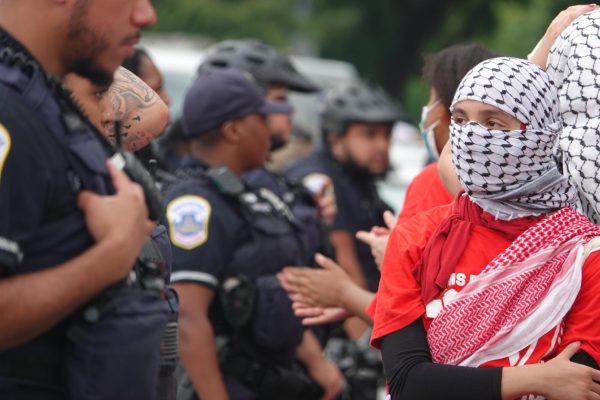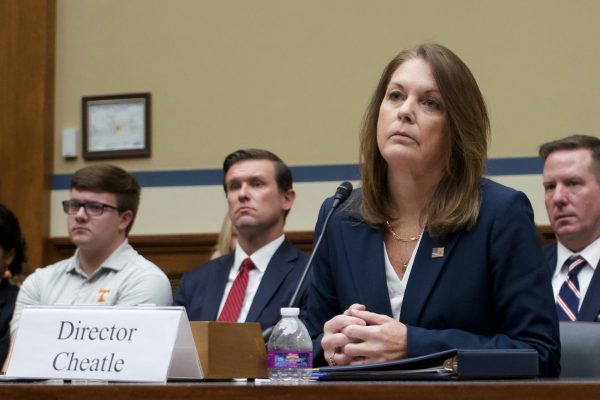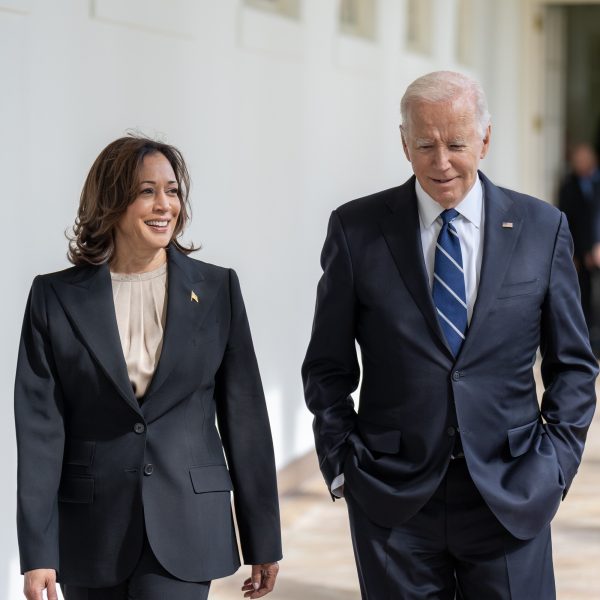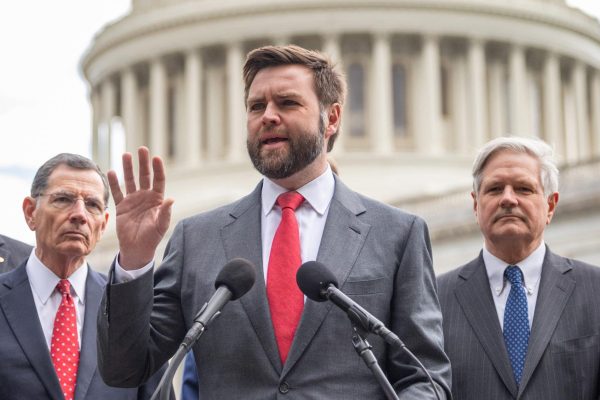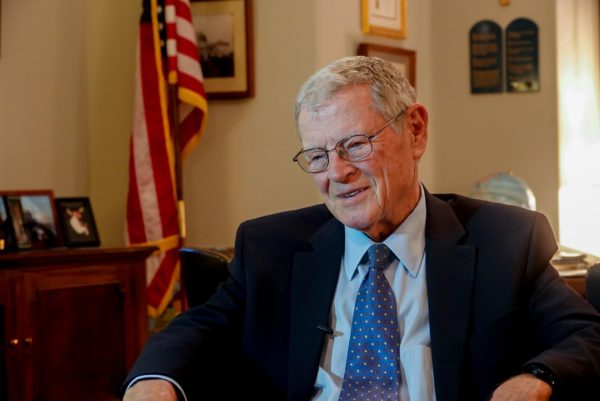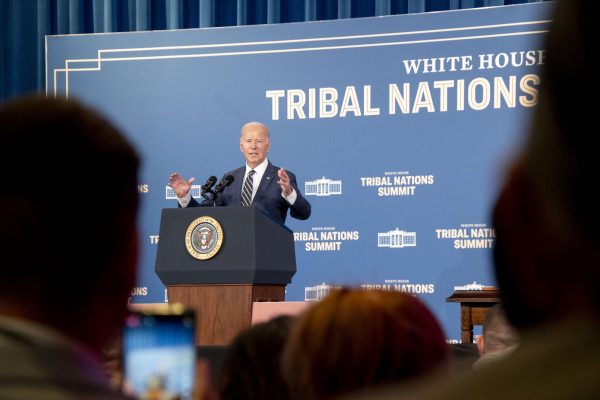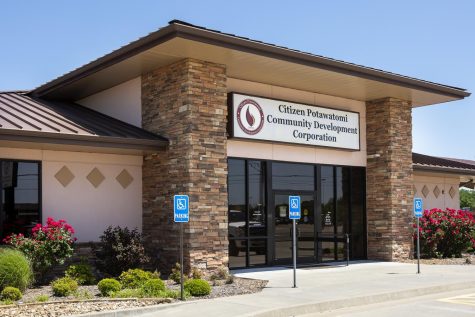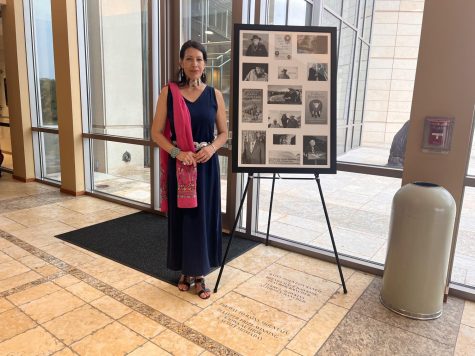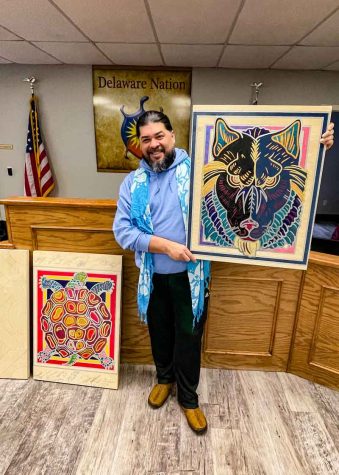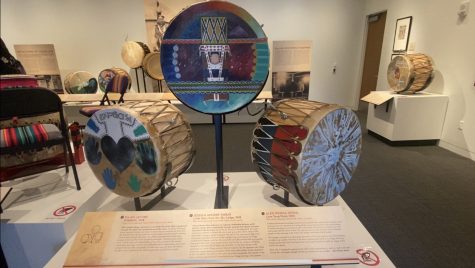Tribal Win: Native children to stay with Native families, Supreme Court rules
Tourists had control of the plaza in front of the U.S. Supreme Court Thursday rather than dueling press conferences as had been the case in last fall’s arguments over the constitutionality of the Indian Child Welfare Act. (Ben Dackiw photo/Gaylord News)
A preference for Native American families adopting Native children was preserved after the Supreme Court on Thursday upheld a landmark Indigenous law.
In a decisive 7-2 ruling involving a Fort Worth family the court upheld terms of the Indian Child Welfare Act, commonly known as ICWA, adopted by Congress in 1978 with only Justices Clarence Thomas and Samuel Alito dissenting.
Justice Amy Coney Barrett delivered the opinion of the court with John G. Roberts, Jr., Sonia Sotomayor, Elena Kagan, Neil Gorsuch, Brett Kavanaugh, and Kentaji Brown Jackson joining Barrett on the majority side.
Gorsuch said the ruling secures the right for Indian families to raise their families as they please and Indian children to grow in their culture.
“Often, Native American tribes have come to this Court seeking justice only to leave with bowed heads and empty hands. But that is not because this court has no justice to offer them,” Gorsuch said in the 133 page ruling.
“Our Constitution reserves for the Tribes a place – an enduring place – in the structure of American life. It promises them sovereignty for as long as they wish to keep it,” he wrote.
Vice President Kamala Harris said she has seen firsthand how essential this law is.
“For centuries, Native children were torn away from their families and their communities. These acts were not only violations of the basic human rights of those children and their families but also an attack on the very existence of Tribal Nations,” Harris said. “President Biden and I will continue to fight to protect Native families, children and communities. And we will continue to stand with Tribal Nations in defense of Tribal sovereignty.”
Alito criticized the Supreme Court majority for violating one of the most basic laws of logic that Congress’ power over Indian Affairs is “plenary” but not “absolute.”
But Oklahoma Rep. Tom Cole (R, Moore) and Rep. Sharice Davids (D, Kansas), the co-chairs of the Congressional Native American Caucus, said the Supreme Court made the right decision.
“This landmark decision rightly upholds protections for Native children and reaffirms the sovereignty rights of tribal governments,” the two said in a joint statement. “We applaud the Supreme Court in rejecting those challenges and standing with Native American children and their right to remain in their own cultures.”
Cherokee Nation Principal Chief Chuck Hoskin, Jr. said it was a major victory for not only the Cherokee Nation, but many tribes across the United States.
“We hope this decision will lay to rest the political attacks aimed at diminishing tribal sovereignty and creating instability through Indian law that have persisted for too long,” Hoskin said.
“The Court once again demonstrated that it understands the legitimacy of ICWA and what it means for tribes, families, and children. … the justices have landed on the right side of history,” he said.
Choctaw Nation Chief Gary Batton joined Hoskin and said he is glad the Supreme Court recognized the benefits of ICWA allowing the law to stand.
The case was filed after a 10 month old Navajo child was placed with Chad and Jennifer Brackeen in Texas.
The child, whose mother was Navajo and father was Cherokee, fell under the definition of an “Indian child” with the child being “a member of an Indian tribe” or “the biological child of a member of an Indian tribe.”
New Mexico’s Navajo Nation protested the Brackeen adoption and found tribal members in New Mexico for the child but the Brackeens fought the tribe in state court urging the court to keep the child with the only parents the child knew.
After the court ruled against the Brackeens, Texas Department of Family and Protective Services almost took the child, but the Brackeens obtained an emergency stay of the transfer. Eventually, the Navajo family the Navajo Nation had found in New Mexico withdrew and the Brackeens were allowed to adopt the boy. But their efforts to adopt the boy’s sister could now be in doubt because of the court’s ruling.
The family told ABC News Thursday that it was “crushed” by the ruling.
Deb Haaland, the Secretary of the Department of Interior, released a statement less than two hours after the case was decided. She said it is a welcome affirmation to what people on both sides of the political aisle have been doing for four decades.
“For nearly two centuries, federal policies promoted the forced removal of Indian children from their families and communities through boarding schools, foster care, and adoption. Those policies were a targeted attack on the existence of Tribes, and they inflicted trauma on children, families and communities that people continue to feel today,” Haaland said.
“Congress passed the Indian Child Welfare Act in 1978 to put an end to those policies. The Act ensured that the United States’ new policy would be to meet its legal and moral obligation to protect Indian children and families, and safeguard the future of Indian Tribes,” she said.
Senate majority leader Chuck Schumer (D – NY) said tribal sovereignty was affirmed with the ruling.
“The Supreme Court upheld the Constitutional right of tribal sovereignty. For hundreds of years, indigenous communities have fought for their very existence, and today is nothing short of a momentous day that ensures that indigenous children maintain a connection to their culture,” Schumer said.
Gaylord News is a reporting project of the University of Oklahoma Gaylord College of Journalism and Mass Communication. For more stories by Gaylord News, go to GaylordNews.net.

